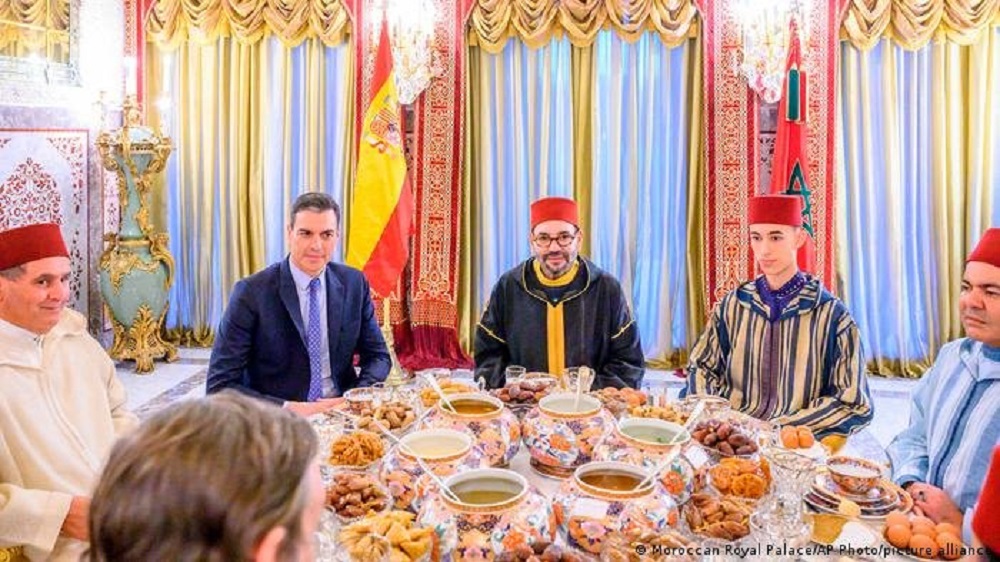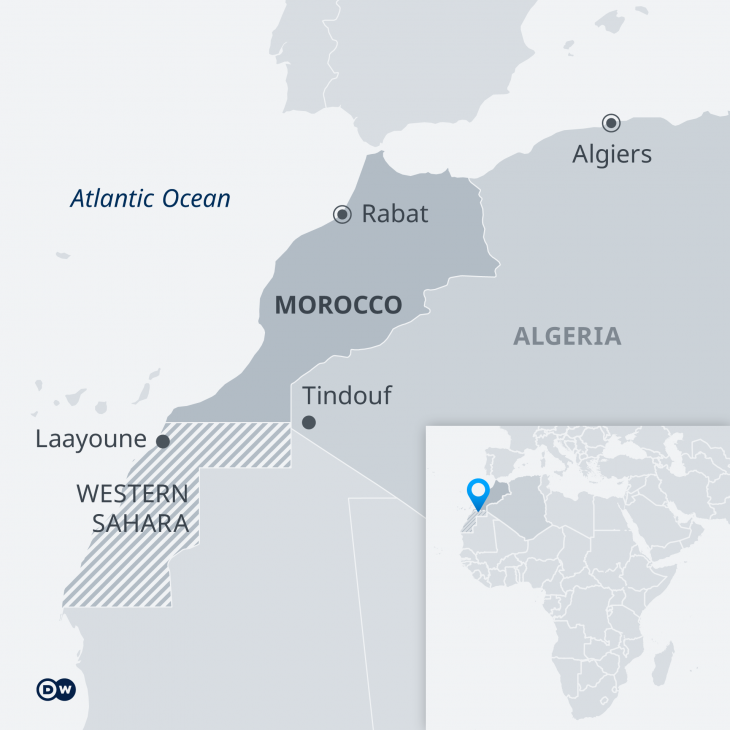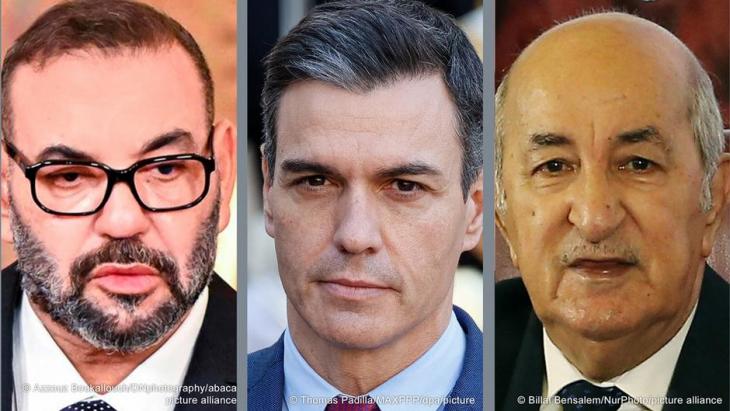What price Madrid and Rabat's "historic" reconciliation?

The silent war between Madrid and Rabat came to an end after nearly a year of strained relations. This followed a visit to Morocco by Spanish Prime Minister Pedro Sanchez, which culminated in an agreement on a road map to resolve the issues jointly facing the two countries.
The dispute was brought to a close and relations resumed between the two neighbours after Morocco’s diplomatic efforts notched up a success over the Sahara issue. This was signified by the announcement by Spain – a member of the group of "Friends of Western Sahara", alongside France, USA, Britain and Russia, as well as being the colonial power in the Sahara for more than nine decades (1884-1975) – that it had agreed a radical change in its official position on the Western Sahara conflict for the first time since its withdrawal from the region 47 years ago.
The Spanish government made clear its new position several weeks ago in a letter from the Spanish Prime Minister to King Mohammed VI, in which it described the initiative on autonomy proposed by Morocco in 2007 as the "most serious, realistic and credible basis for resolving the dispute" over Western Sahara.
This change represents a radical reversal of Spain's political credo towards the problem. Coming from a former colonial power, it is tacit acknowledgment that the land has been returned to its rightful owners. It also comes from a European country that is ostensibly committed to neutrality between the two parties, albeit the reality has been quite the opposite. Only a few months ago, Madrid welcomed Brahim Ghali, the leader of the Polisario Front, on a forged identity card and passport, so that he could receive treatment in its hospitals.

Spain in Algeria and Morocco's crosshairs
Madrid's reconciliation with Rabat has been offset by a diplomatic crisis with Algeria. The latter called the Spanish decision a "second betrayal of the Sahrawi people" and summoned the Algerian ambassador home from Madrid for consultations. Algeria has a strong working relationship with Spain; it supplies more than a third of the kingdom’s gas needs. Indeed, Spain is the third largest importer of Algerian gas after Italy and France. For this reason, Algeria has the means to exert pressure on Madrid, which until recently had been looking to increase the flow of Algerian gas to Spain, in line with the European policy of steadily reducing its reliance on Russian gas.
Not much has been revealed about the details of the "reconciliation deal". The media and the commentators in Rabat and Madrid are chewing over the content of the Spanish PM’s letter to the King and the details contained in their joint statement. The announcement followed the talks which brought together Pedro Sanchez, the first European official to be officially received in Rabat since the coronavirus pandemic kicked off in 2020, with King Mohammed.
One popular interpretation is that this reversal in the Spanish position is part of the fallout from Russia's invasion of Ukraine. Madrid's shift towards supporting Rabat’s proposal for self-rule was in response to Algeria's rejection of an American demand to increase gas production to meet European needs, as well as the resurrection of a Maghreb-European pipeline via Morocco, with a view to reducing dependence on Russian gas. On the surface, the change would appear tied to a specific chronology: the shift in Spain's position coincided directly with U.S. State Department envoy Wendy Sherman's visits to Rabat, Madrid and Algeria.
Deal apparently limited to Rabat and Madrid
The presumption that Washington was involved is rather unlikely for a number of reasons. The U.S. under the Democrats remains cautious in its approach to the Sahara conflict, unlike the Republicans, who decided, under Donald Trump, to recognise the Moroccan claim to Western Sahara in exchange for its announcement that it would normalise relations with Tel Aviv. Another grudge held by the U.S. against Morocco, its main ally in North Africa, was that it had not even turned up to the UN General Assembly to support the United States' unprecedented position during the voting process.

There are a number of clues that point to the deal being limited to Rabat and Madrid and also to the likelihood that it predates the war in Ukraine by several months. In his speech to mark "The Revolution of the King and the People" on 20 August 2021, King Mohammed VI spoke of a new era in relations between Morocco and Spain. In other words, the groundwork was already being laid for this change in the Spanish position. It didn't happen overnight; rather, it was the result of months of co-ordination and consultation, away from the spotlight, between the two parties on contentious issues, especially with regard to Western Sahara.
The key messages in the joint statement, such as talking about "common commitments between the two countries", the pledge to "refrain from all unilateral action", as well as "joint action to address common challenges", hint at the reasons for Spain’s change of heart over Western Sahara. Madrid had previously been active in stirring up opposition within the European Union to Trump’s decision; the fact that it shifted towards public support for Morocco’s proposal was something of a departure.
Perhaps the first area of agreement came when Pedro Sanchez declared, in a press conference he held in Rabat after his reception by the King, that "there can be no doubt about sovereignty in respect of Spain’s national territory, and that includes Ceuta and Melilla". The Moroccan media stayed silent when Sanchez visited the occupied areas of Ceuta and Melilla, which suggests that his stopover there was part of the reconciliation deal. This suspicion is confirmed most particularly by the way in which Rabat has used the issue of the two occupied cities on several occasions in recent years. Indeed, it became a diplomatic crisis when the previous Moroccan Prime Minister Saadeddine Othmani spoke in a press interview about the two territories being "as Moroccan as the Western Sahara".
Rabat had been resolved to ramp up the pressure on Madrid in all manner of ways (with regard to immigration, security co-operation, shutting the borders...). Spanish newspapers talked about the possibility of Rabat using the separatist card in Catalonia. This came after the announcement by Dr Victoria Alsina, the minister of foreign labour in the Catalan government that they were waiting for the Moroccan authorities to respond in light of their agreement to transfer their regional representative office to Morocco from Tunisia.
Aside from the price to be paid for this reconciliation between Rabat and Madrid, there is a fundamental question which is not being discussed amid the euphoria over this "diplomatic win". That is, what guarantees are there that the terms of the deal will be implemented? In other words, is recognition of the Moroccan claim to the Western Sahara the position of the Spanish state, or just the ruling party? While Sanchez was in Rabat, the Spanish parliament denounced the government's abandonment of its historically neutral position over Western Sahara. The Spanish parties, including the government’s own coalition partner Podemos went as far as to oppose the official position over autonomy for Western Sahara, thereby threatening to end the consensus on foreign policy.
© Qantara.de 2022
Translated from the Arabic from Chris Somes-Charlton
